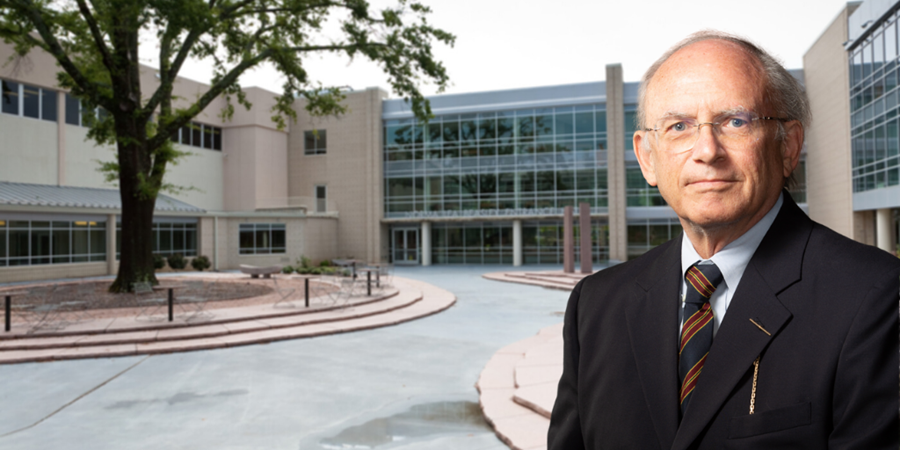In a special issue dedicated to their annual symposium, the Arkansas Law Review has published a collection of articles that examine the U.S. Supreme Court’s infamous decision in Korematsu v. United States.
In Korematsu, the U.S. Supreme Court upheld the constitutionality of Japanese internment camps during World War II. The decision is widely regarded as one of the worst in U.S. Supreme Court history.
In the symposium’s central piece, Mark R. Killenbeck, Distinguished Professor of law at U of A, asserts that an important insight lies beneath Korematsu’s problematic surface. His essay focuses on the foundational legal concept of “strict scrutiny” and finds its inception in the Korematsu decision.
Strict scrutiny is the most exacting standard of review used by the courts, and it has served as the basis for striking down virtually all measures that discriminate on the basis of race, ethnicity or national origin.
Thus, despite its rightly reviled standing, Killenbeck makes the argument that Korematsu still has a central place in the constitutional order because of its “articulation of precepts and terminology that provide the foundations for strict scrutiny.”
Many of the nation’s leading constitutional scholars joined the symposium to respond to Killenbeck’s “intentionally provocative” article. Constituting one of the most prominent cohorts ever assembled in a single law review issue, scholars from Yale Law School, Harvard Law School, Duke Law School, University of Texas School of Law, Boston University School of Law and the University of North Carolina School of Law penned essays praising, critiquing and otherwise engaging Killenbeck’s thesis.
Sanford Levinson, the W. St. John Garwood and W. St. John Garwood Jr. Centennial Chair at the University of Texas Law School, and the co-author of Fault Lines in the Constitution and Democracy and Dysfunction, spoke highly of the Arkansas Law Review symposium, adding, “I think that Mark Killenbeck’s article on Korematsu (and much else) is one of the most stimulating essays I’ve read in years. It raises profound questions about the way lawyers, in thrall to the Supreme Court, define issues of fundamental importance. It deserves to become a classic in the classroom as well as in the consciousness of legal academics.”
Mark Graber, University System of Maryland Regents Professor of Law, in turn, observed that “the Arkansas Law Review has put together a star-studded cast to examine Arkansas’s own Mark Killenbeck's path-breaking analysis of the lawyering in two of the most important cases decided by the Supreme Court, Korematsu v. United States and Trump v. Hawaii. The volume as a whole will stimulate exciting conversations in the legal academy, as well as in history and political science.”
Faculty members at the U of A School of Law also spoke highly of the law review’s collaboration with Killenbeck and the sterling group that critiqued his work. Alex Nunn, assistant professor of law and the faculty adviser of the Arkansas Law Review, insisted that the symposium issue could very well constitute an inflection point for the journal. “Professor Killenbeck has brought together some of the nation’s most impressive constitutional scholars in the pages of the Arkansas Law Review. We owe him a debt of gratitude. The journal’s symposium issue is immense, and the project is bound to make waves across the nation for years to come.”
Arkansas Law Review editor-in-chief Nick Bell echoed Nunn’s perspective, stating, “It is an incredible privilege to work with this group of scholars. They are the best of the best. We are deeply grateful that they are willing to let us publish their work and add luster to the review.”
The symposium issue is publicly available on the Arkansas Law Review website and will be in print shortly.
The Arkansas Law Review is edited by second- and third-year students in the U of A School of Law and is the premier journal of legal scholarship in Arkansas. Originally called the Law School Bulletin, the journal has been published since 1929. It was renamed in 1946.
About the University of Arkansas: As Arkansas' flagship institution, the U of A provides an internationally competitive education in more than 200 academic programs. Founded in 1871, the U of A contributes more than $2.2 billion to Arkansas’ economy through the teaching of new knowledge and skills, entrepreneurship and job development, discovery through research and creative activity while also providing training for professional disciplines. The Carnegie Foundation classifies the U of A among the top 3% of U.S. colleges and universities with the highest level of research activity. U.S. News & World Report ranks the U of A among the top public universities in the nation. See how the U of A works to build a better world at Arkansas Research News.
Topics
Contacts
Mark Killenbeck, Wylie H. Davis Distinguished Professor
School of Law
479-575-4358, mkillenb@uark.edu
Yusra Sultana, director of communications
School of Law
479-575-7417,
ysultana@uark.edu
